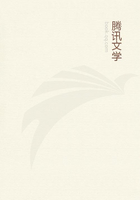
第47章 Malthus(5)
Malthus answered the problem in the simplest and most consistent way in his first edition.What are the checks?The ultimate check would clearly be starvation.A population might multiply till it had not food.But before this limit is actually reached,it will suffer in various ways from scarcity.Briefly,the checks may be distinguished into the positive,that is,actual distress,and the preventive,or 'foresight.'We shall actually suffer unless we are restrained by the anticipation of suffering.As a fact,however,he thinks that men are but little influenced by the prudence which foresees sufferings.They go on multiplying till the consequences are realised.You may be confined in a room,to use one of his illustrations,18though the walls do not touch you;but human beings are seldom satisfied till they have actually knocked their heads against the wall.He sums up his argument in the first edition in three propositions.19Population is limited by the means of subsistence;that is obvious;population invariably increases when the means of subsistence are increased;that is shown by experience to be practically true;and therefore,finally,the proportion is maintained by 'misery and vice.'That is the main conclusion which not unnaturally startled the world,Malthus always adhered in some sense to the main doctrine,though he stated explicitly some reserves already implicitly involved.A writer must not be surprised if popular readers remember the unguarded and dogmatic utterances which give piquancy to a theory,and overlook the latent qualifications which,when fully expressed,make it approximate to a commonplace.The political bearing of his reasoning is significant.The application of Godwin's theories of equality would necessarily,as he urges,stimulate an excessive population.To meet the consequent evils,two measures would be obviously necessary;private property must be instituted in order to stimulate prudence;and marriage must be instituted to make men responsible for the increase of the population.These institutions are necessary,and they make equality impossible.Weak,then,as foresight may be with most men,the essential social institutions have been developed by the necessity of enabling foresight to exercise some influence;and thus indirectly societies have in fact grown in wealth and numbers through arrangements which have by one and the same action strengthened prudence and created inequality.Although this is clearly implied,the main impression produced upon Malthus's readers was that he held 'vice and misery'to be essential to society;nay,that in some sense he regarded them as blessings.
He was accused,as he tells us,20of objecting to vaccination,because it tended to prevent deaths from small-pox,and has to protest against some one who had declared his principles to be favourable to the slave trade.21He was represented,that is,as holding depopulation to be good in itself.These perversions were grotesque,but partly explain the horror with which Malthus was constantly regarded;and we must consider what made them plausible.
I must first notice the maturer form of his doctrine.In the second edition he turns to account the result of his later reading,his personal observations,and the statistical results which were beginning to accumulate.The remodelled book opens with a survey of the observed action of the checks;and it concludes with a discussion of the 'moral restraint'which is now added to 'vice and misery.'Although considerable fragments of the old treatise remained to the last,the whole book was altered both in style and character.The style certainly suffers,for Malthus was not a master of the literary art;he inserts his additions with little care for the general effect.He tones down some of the more vivid phrases which had given offence,though he does not retract the substance.
A famous passage 22in the second edition,in which he speaks of 'nature's mighty feast,'where,unluckily,the 'table is already full,'and therefore unbidden guests are left to starve,was suppressed in the later editions.Yet the principle that no man has a claim to subsistence as of right remains unaltered.The omission injures the literary effect without altering the logic;and I think that,where the argument is amended,the new element is scarcely worked into the old so as to gain thorough consistency.